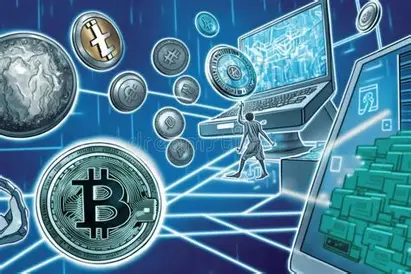Herein this article, we discussed The Rise of Digital Currencies, The Shift Away from Cash, Advantages of a Cashless Future, The Future: Coexistence or Replacement?
In the not-so-distant past, the jingling of coins and the rustle of paper notes defined the world’s economic heartbeat. Today, money no longer needs to make a sound. As digital currencies gain momentum and physical cash usage declines, we’re left facing an urgent and fascinating question: Is cash becoming obsolete?
The Rise of Digital Currencies
Digital currencies—led by cryptocurrencies like Bitcoin and Ethereum and bolstered by central bank digital currencies (CBDCs)—are transforming how we perceive and interact with money. These aren’t just fancy alternatives for tech enthusiasts; they are the building blocks of a broader monetary revolution.
Unlike traditional currencies, digital currencies can operate without physical form or intermediaries. This opens the door to faster transactions, lower fees, and greater financial inclusivity. For unbanked populations, a smartphone and internet connection are becoming enough to participate in the global economy.
The Shift Away from Cash
COVID-19 accelerated the decline of cash. Hygiene concerns, contactless payments, and the convenience of mobile wallets pushed millions toward digital alternatives. In countries like Sweden and South Korea, cash has all but vanished from daily life. Retailers and governments alike are embracing a “cashless” mindset.
According to a 2024 report by the Bank for International Settlements, over 90% of the world’s central banks are exploring or piloting CBDCs. The message is clear: the age of physical money is giving way to its digital descendants.
Advantages of a Cashless Future
- Efficiency: Digital payments are quicker and often cheaper for both consumers and businesses.
- Transparency: Blockchain technology offers unprecedented traceability, helping to combat fraud, tax evasion, and corruption.
- Financial Inclusion: Digital currencies can bring formal financial services to billions who currently operate in informal economies.
But Wait—Is Cash Really Dead?
Despite the digital tide, cash still plays an essential role. In many regions, especially in developing economies, cash remains a lifeline. It provides privacy, requires no technology, and is resistant to outages or cyberattacks.
Cash is also culturally significant. For many, it’s a symbol of security, freedom, and tradition. And then there are the practical concerns—what happens during system failures, cyber warfare, or digital surveillance overreach?
The Future: Coexistence or Replacement?
The future of money likely won’t be a binary choice between cash and digital. Instead, a hybrid system may emerge—where digital currencies handle the bulk of transactions, while cash provides a fallback and preserves certain freedoms.
Governments must tread carefully. Replacing cash entirely could marginalize vulnerable populations. Privacy concerns must be balanced with regulatory needs. The path forward requires not just technological innovation but also ethical and inclusive policymaking.
CONCLUSION
Is cash dead? Not yet. But it’s undeniably fading.
As digital currencies continue their upward trajectory, we stand on the cusp of a monetary transformation not seen since the invention of paper money. The challenge now is ensuring that this new future is fair, secure, and accessible for all.
In this brave new world of money, it’s not just about how we pay—but who gets to participate in the economy of tomorrow.
The notion of a completely cashless society is certainly gaining momentum, fueled by the undeniable benefits of digital transactions. However, the unique advantages of physical cash – privacy, accessibility, and resilience – mean it’s unlikely to vanish overnight. Instead, we are entering a fascinating era of monetary evolution, where digital currencies will play an increasingly dominant role, reshaping how we transact, save, and interact with money in the years to come. The question isn’t whether cash is dead, but rather, how will it adapt, and what new forms of money will rise to define our financial future?


